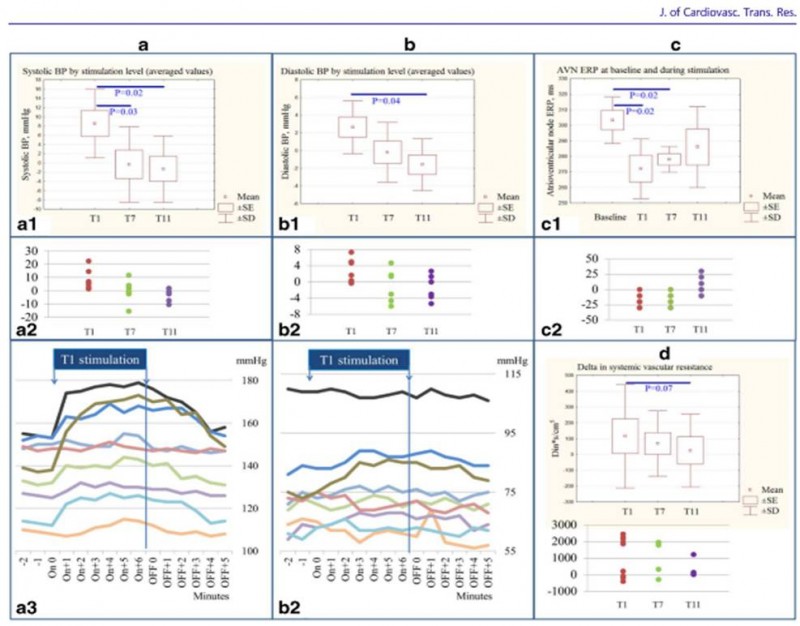The multidisciplinary project of the specialists of Almazov Centre and Pavlov Institute of Physiology received international recognition, and the first results were published in the Journal of Cardiovascular Translational Research.
The scientists have found that non-invasive transcutaneous electrical stimulation of the spinal cord may affect the regulation of blood pressure, pulmonary vascular resistance and the speed of electrical conduction in the heart. The methodis based on applying high-frequency stimuli by modulated electric current via special electrodes located on the skin of the back above specific segments of the spinal cord. Stimulationispainlessandwelltoleratedbypatients.
A series of studies measuringnumerous parameters of systemic and pulmonary circulation showed that some parameters of cardiac function and blood vessels can be regulated. Accordingtotheresearchers, theresultsofthe study openupnewpossibilitiesfornon-invasiveneuromodulation.

Cardiovascular effects of non-invasive spinal cord stimulation
In the future, it is planned to study the use of the method in patients with episodes of blood pressure drops and cardiac conduction disorders.
The work is carried out by the specialists of Neuromodulation Research Laboratory and ArrhythmologyResearch Department of Almazov Centre, Research Department for Physiology of Blood Circulation ofPolenov Neurosurgical Institute and the scientists of Pavlov Institute of Physiology.
The full-text article is available in the Journal of Cardiovascular Translational Research.
